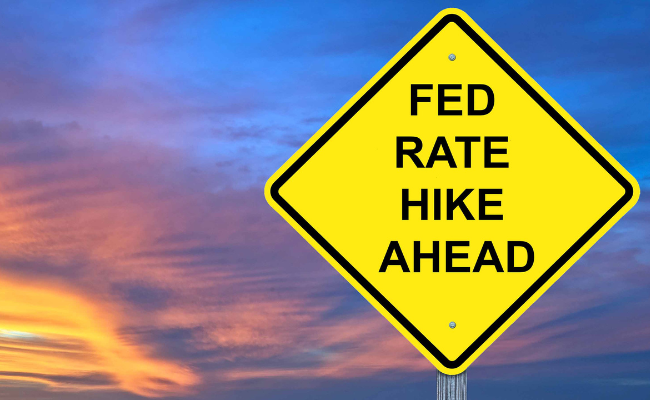Federal Reserve Expected to Raise Interest Rates to 6%, Says BlackRock
Multinational investment firm BlackRock expects the US Federal Funds Rate to hit 6% following Fed chair Jerome Powell’s recent statement.
He warned interest rates would likely reach higher than the Federal Reserve previously thought.
Yet, BlackRock chief investment officer Rick Rieder said the economy could withstand such conditions due to recent jobs and consumer price index reports.
More details about the 6% Federal Reserve interest rate
BlackRock says the Federal Reserve could hike interest rates to a peak of 6% https://t.co/QuF5OwW2Oh
— CNBC (@CNBC) March 8, 2023
Rick Rieader wrote a response to Powell’s recent testimony before the Senate Banking Committee:
“We think there’s a reasonable chance that the Fed will have to bring the Fed Funds rate to 6%…”
“… and then keep it there for an extended period to slow the economy and get inflation down to near 2%.”
Morgan Stanley economists said that the Fed chairman’s statements increased the chances of larger rate hikes of up to 50 basis points.
In February, the Federal Reserve increased rates by 25 basis points, raising the federal funds rate from 4.50% to 4.75%.
Also, Jerome Powell declared the Fed is ready to increase rates if necessary:
“If the totality of the data were to indicate that faster tightening is warranted, we would be prepared to increase the pace of rate hikes.”
“The historical record cautions strongly against prematurely loosening policy. We will stay the course until the job is done,” Powell confirmed.
However, the BlackRock chief investment officer said the economy seemed to be more resilient than expected.
“This is partly due to the fact that today’s economy is no longer as interest-rate sensitive as that of past decades.…”
“… and its resilience, while a virtue, does complicate matters for the Fed,” Rieder stated.
How does a higher Federal Funds Rate affect you?

Photo Credit: www.kiplinger.com
Some people may view talks about the Federal Reserve and interest rates as mumbo-jumbo, but it has significant implications for daily life.
The Fed rate or the Federal Funds rate guides banks on how much money they will charge banks for loans.
Why would banks lend money to each other? Bank-to-bank lending allows these financial institutions to maintain their cash supply, also known as liquidity.
As a result, they can provide loans to customers. Moreover, banks must follow the Federal Funds Rate so that the Federal Reserve can steer the economy.
How does this affect regular Americans? Higher fed rates mean you would likely have to pay higher monthly interest rates for credit cards.
First-time entrepreneurs usually fund startups by taking business loans, but those would become more expensive if the Fed rate goes up.
Moreover, businesses typically borrow money to fund new branch locations or improve their equipment. Budding companies may rely on debt to cover operating expenses.
A higher interest rate means more of their revenue would go to corporate debt. There would be less money for other parts of the business, so it may take a longer time to grow.
As a result, their stocks may yield little or no growth. If you invest in stocks, that means your asset value may stagnate or decline.
Also, a high federal interest rate spells trouble for real estate investors. Buying new homes would become more expensive, so reselling them could become more difficult.
If you are paying a variable-rate mortgage, expect to pay more for your home every month.
Lastly, businesses would likely spend more money on debt payments, passing the costs to consumers. As a result, consumer prices would likely increase further.

